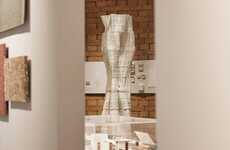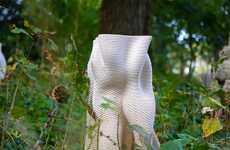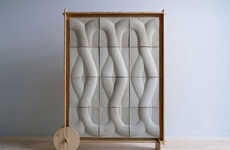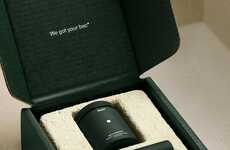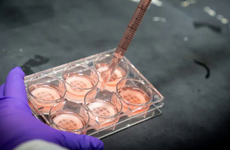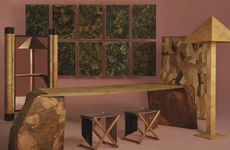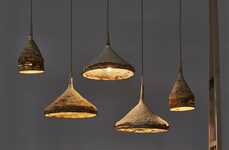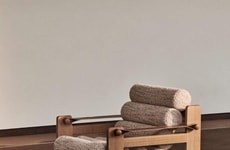
BioLab Studio Developed a System for Growing Mycelium
Kalin Ned — December 22, 2022 — Art & Design
References: dezeen
BioLab Studio has invented a fascinating new system that produces 3D-printed scaffolds where mycelium can be cultivated. This is an important development for various industries as mycelium has become quite widely used in various sustainable initiatives—from manufacturing and material use to packaging designs.
The 3D-printed scaffold is made out of a mixture of hemp fibers and coffee grounds which is optimized by the program. The wood composite plays two roles—it is a nutrient source for the mycelium but also a scaffold for the spores to grow. The structural makeup of the 3D-printed scaffold is determined accordingly. BioLab Studio also developed a robotic arm with a moisture sensor. The robot " interfaces with the form of the 3D-printed object in order to implant and moisturize the mycelium." So, BioLab Studio's system is between the physical and the virtual.
Image Credit: BioLab Studio
The 3D-printed scaffold is made out of a mixture of hemp fibers and coffee grounds which is optimized by the program. The wood composite plays two roles—it is a nutrient source for the mycelium but also a scaffold for the spores to grow. The structural makeup of the 3D-printed scaffold is determined accordingly. BioLab Studio also developed a robotic arm with a moisture sensor. The robot " interfaces with the form of the 3D-printed object in order to implant and moisturize the mycelium." So, BioLab Studio's system is between the physical and the virtual.
Image Credit: BioLab Studio
Trend Themes
1. Sustainable Manufacturing Materials - The use of mycelium-based 3D printed scaffolds offers a disruptive innovation opportunity to develop sustainable manufacturing materials through the use of natural products.
2. Smart Farming - The development of robotic arms with moisture sensors to grow mycelium on 3D printed scaffolds presents a trend towards smart farming.
3. Biological Manufacturing - BioLab Studio's innovative system for cultivating mycelium on 3D-printed scaffolds presents an opportunity for the growth of an industry around biological manufacturing.
Industry Implications
1. Packaging Design - The utilization of mycelium-based 3D-printed scaffolds presents a disruptive innovation opportunity for the packaging design industry to develop sustainable and biodegradable products.
2. Construction - The use of mycelium-based 3D-printed scaffolds opens up disruptive innovation opportunities in the construction industry, where natural materials are needed for sustainable building practices.
3. Agriculture - The development of robotic arms with moisture sensors to grow mycelium on 3D printed scaffolds presents a trend in the agriculture industry towards smart farming practices.
5.8
Score
Popularity
Activity
Freshness


